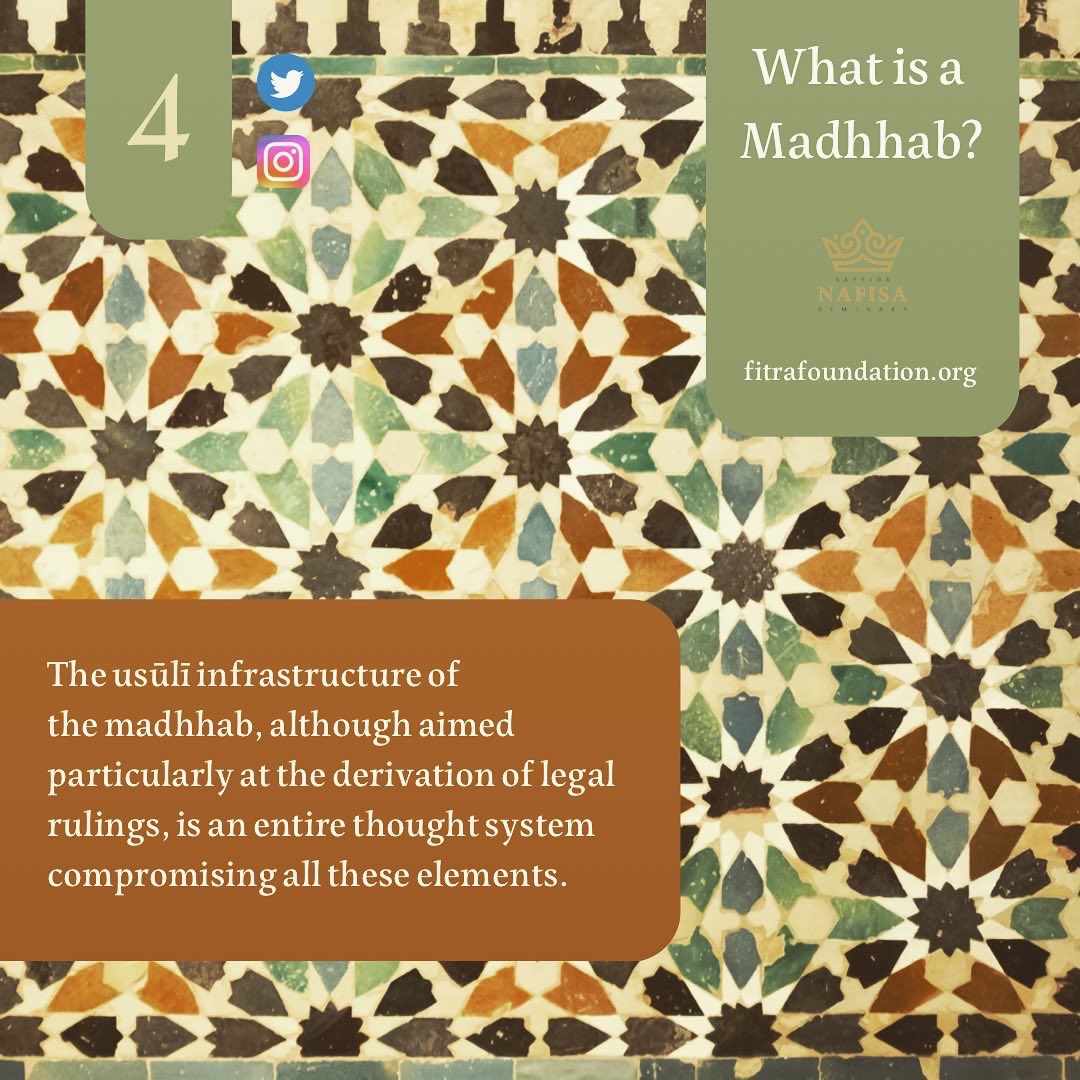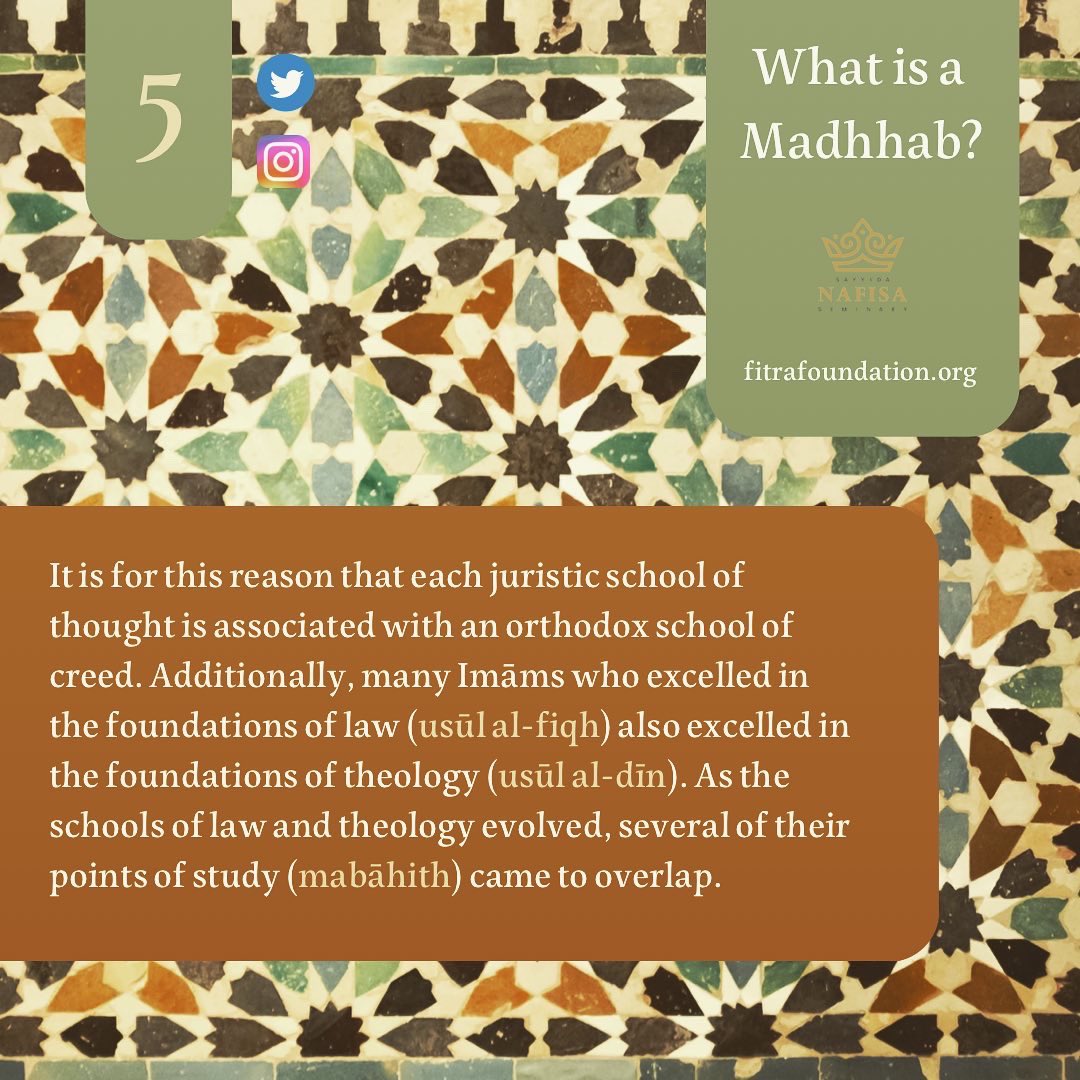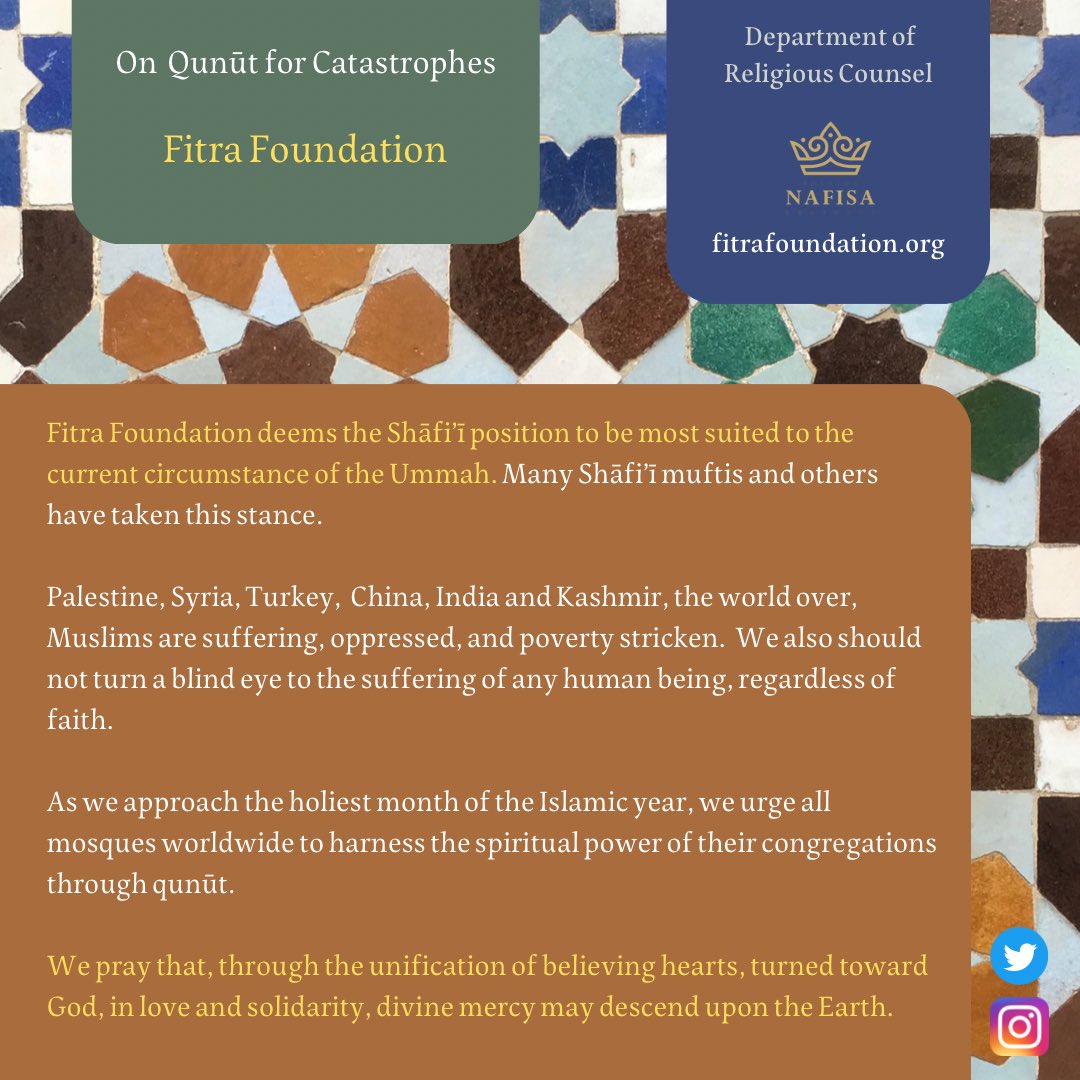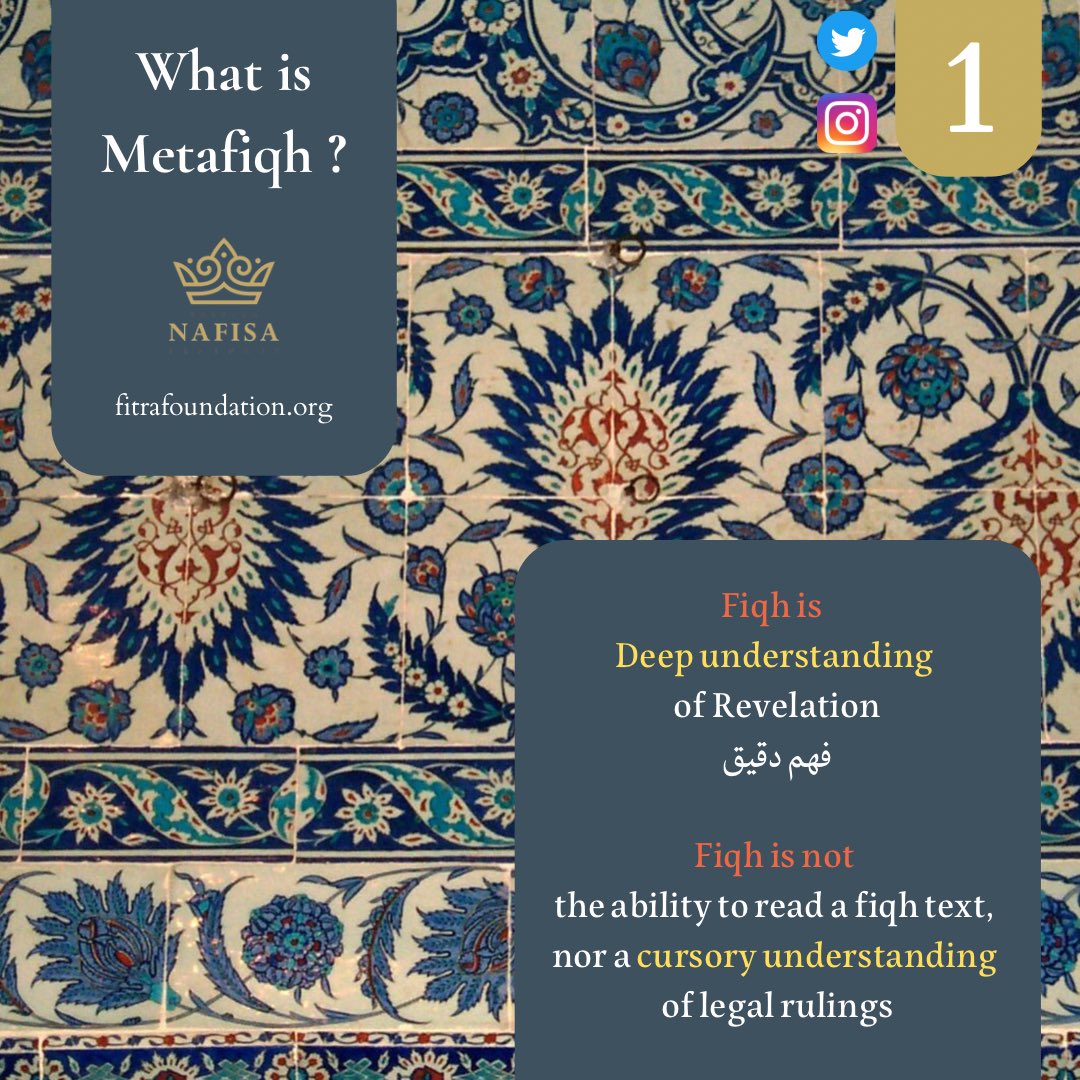
﷽
What is a Madhhab?
Part 1. Usūl
On this 6th of Sha’ban 1444, we continue our series of posts on #metafiqh in preparation for our introductory publication.
A madhhab is compromised of five levels of legal infrastructure.
1. Usūl
2. Fiqh
3. Fatwā
4. Qadā’
5. Taqnīn
What is a Madhhab?
Part 1. Usūl
On this 6th of Sha’ban 1444, we continue our series of posts on #metafiqh in preparation for our introductory publication.
A madhhab is compromised of five levels of legal infrastructure.
1. Usūl
2. Fiqh
3. Fatwā
4. Qadā’
5. Taqnīn

Level 1. Usūl
This is the evidenciary level of the madhhab’s infrastructure. It represents a heurmenutucal system through which revelatory texts are interpreted.
This is the evidenciary level of the madhhab’s infrastructure. It represents a heurmenutucal system through which revelatory texts are interpreted.

From such interpretations,
the following are derived:
a. creedal tenets
b. spiritual tenets
c. quranic exegesis
d. legal rulings
e. prophetic practice
the following are derived:
a. creedal tenets
b. spiritual tenets
c. quranic exegesis
d. legal rulings
e. prophetic practice

The usūlī infrastructure of
the madhhab, although aimed particularly at the derivation of legal rulings, is an entire thought system compromising all these elements.
the madhhab, although aimed particularly at the derivation of legal rulings, is an entire thought system compromising all these elements.

It is for this reason that each juristic school of thought is associated with an orthodox school of creed. Additionally, many Imāms who excelled in the foundations of law (usūl al-fiqh) also excelled in the foundations of theology (usūl al-dīn).… 

The place of spiritual tenets in usūl is also critically important, although most often unpronounced.
In the pious period, the Imāms of fiqh were also spiritual exemplars.
In the pious period, the Imāms of fiqh were also spiritual exemplars.

While the four Imāms shared a common spiritual ethos, their fiqh exhibited ethical intradistinctions. The implications of spiritual ethics upon the sacred law is an important element of our metafiqh research. Through observation of the bidirectional influence of ethics and law… 

Metafiqh provides a knowledge infrastructure through which a comprehensive conception of the madhhab may be formed and from which contemporary expansion is possible.
Metafiqh is innovative Tradition.
Metafiqh is innovative Tradition.

Fitra Foundation is committed to teaching Religion holistically in the context of
human spiritual health and
prophetic perfection.
Sayyida Nafīsa Seminary aims to train female juristic experts to meet contemporary challenges.
human spiritual health and
prophetic perfection.
Sayyida Nafīsa Seminary aims to train female juristic experts to meet contemporary challenges.

Support this historic initiative.
Twitter
@FitraFoundation
@imanmbadawi
Instagram
@fitra_foundation
@Shaykha.iman.badawi
instagram.com/p/CpMLmwcjG3q/…
@FitraFoundation
@imanmbadawi
@fitra_foundation
@Shaykha.iman.badawi
instagram.com/p/CpMLmwcjG3q/…
الحمد لله ربّ العالمين
May Allah’s infinite peace & blessings be upon Rasūlullāh, his pure progeny & folk, along with his gleaming companions, illuminated inheritors, and all loyal followers until the Last Day.
May Allah’s infinite peace & blessings be upon Rasūlullāh, his pure progeny & folk, along with his gleaming companions, illuminated inheritors, and all loyal followers until the Last Day.
• • •
Missing some Tweet in this thread? You can try to
force a refresh











